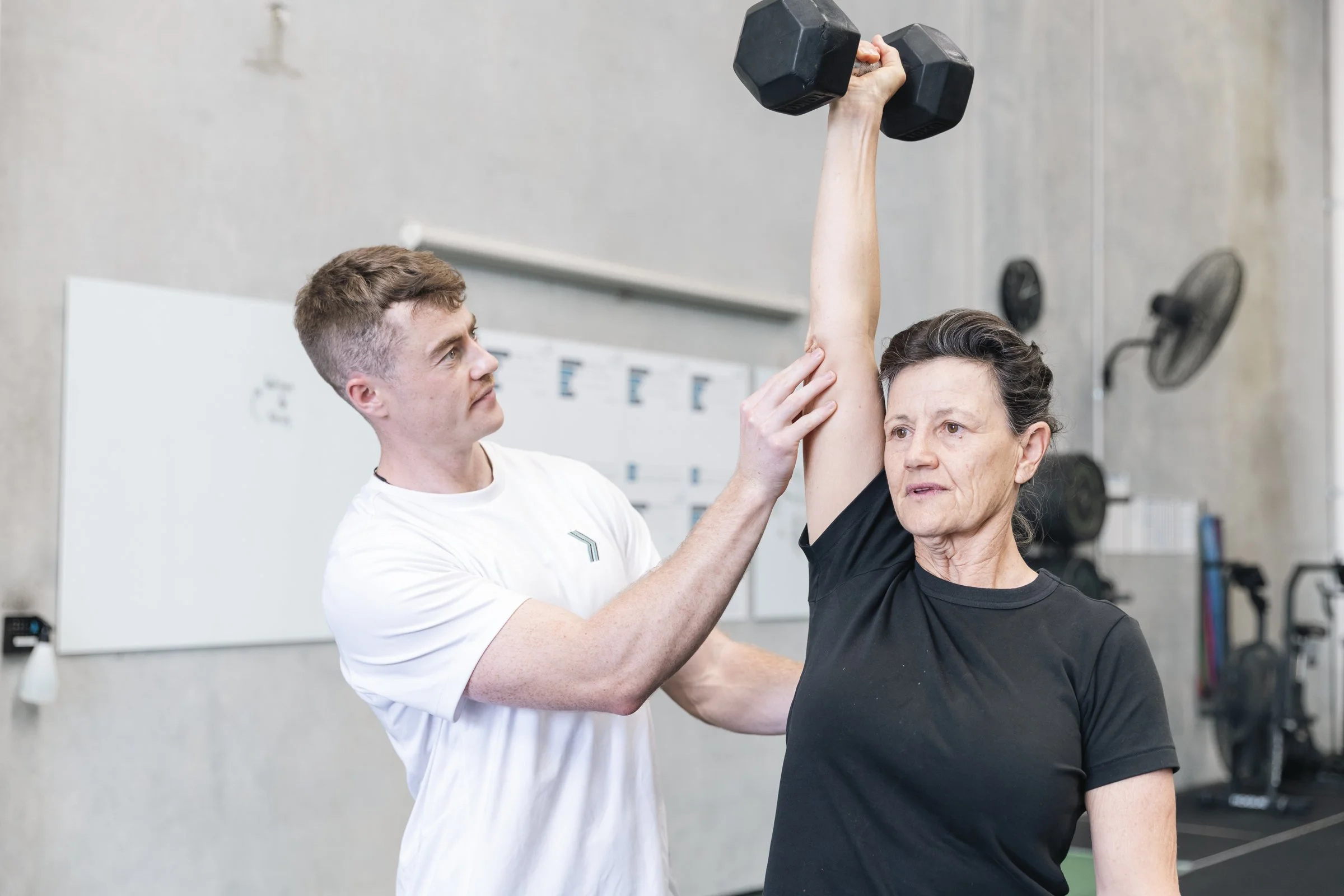Shoulder Pain and Injuries
Shoulder pain and injury is something we regularly assess and treat. We are highly experienced in treating general shoulder injuries as well as in athletes.
Here are a few of the shoulder issues we treat in more detail, or you can book an appointment via the button below:
Shoulder Impingement (Subacromial Pain Syndrome)
Shoulder impingement is the compression of structures in the shoulder (glenohumeral) joint with the underside of the acromion. The most common type is often due to rotator cuff compression and is usually felt as pain on the front/top of the shoulder, particularly when lifting the arm overhead.
Shoulder impingement can have a few causes but is commonly caused by a lack of strength and control of the muscles of the shoulder and shoulder blade.
Exercise to improve co-ordination and strength are considered the gold standard of treatment and as Physiotherapists working in a strength and conditioning setting in our West Perth and Osborne Park clinics we are well set up to help you with this.
Rotator Cuff Injuries
The rotator cuff is a the group of muscles involved in stabilising your shoulder joint, tears and tendinopathies of this muscle group can be causes of weakness, stiffness and pain the shoulder.
Rotator Cuff Tears
Rotator cuff tears can be caused by a sudden trauma or load (like a fall), or from repeated use with poor mechanics and strength over a long period of time. The latter being more common in older populations.
Treatment:
Depending on the degree of the tear and the age, goals and individual goals of the patient these can be managed with exercise rehabilitation, but may require surgery in extreme cases.
Rotator Cuff Tendinopathies (Previously called tendinitis)
Tendinopathies are usually caused by overloading the muscles and tendons relative to their capacity of strength and endurance, without enough recovery time for them to adapt to the load.
i.e: Doing too much too soon or too often.
They are commonly felt as pain that warms up during exercise, with the pain returning once you have cooled down or the next day.
Treatment:
There are various stages of tendinopathies which need to be assessed by a Physiotherapist to ensure you are doing the right treatment for each stage. Treatment may consist of strength and control exercises to improve the function of the muscles/tendons to make sure they are strong enough to handle the level of sport and activity you want to do.
It is also important to assess the whole body in these cases the cause of the overload may be because another area of the body not doing enough to take the load.
You can read more about how exercise can improve injuries on our blog here.
Bursitis
A bursa is a small fluid filled “friction pad” that sits underneath tendons to allow them to glide easily over joints and bones. They can become swollen and inflamed if the tendons associated with them are overused, particularly with repetitive movements.
Treatment:
The treatment for conditions involving inflammation are usually a combination of:
Unloading, or relative time off of the activity, to allow your body to move or manage the levels of fluid and chemicals associated with inflammation.
Sleep, hydration, healthy eating and stress management. All of these things can affect biological chemicals in your body which can either improve or exacerbate inflammation.
Potentially anti-inflammatory medication or injections.
A guided return to movement and exercise to ensure you don’t have a recurrent flare up by doing the same thing.
Frozen Shoulder
Frozen shoulder, or Adhesive Capsulitis, is a progressive condition that initially starts as an acutely painful shoulder and progresses into a less painful, but excessively stiff shoulder. Often the condition resolves on its own after about 12 months, but may take longer without treatment. The cause of the stiffness is not well understood, but may be caused by inflammation and fibrosis of the joint capsule of the shoulder and stiffening of the stabilising muscles and ligaments.
Treatment:
In some cases corticosteroid injections may be helpful in the treatment, but generally these are best used in conjunction with exercise.
Physiotherapy, specifically exercise and education about the pain you may be experiencing involved, can help to shorten the duration of the symptoms and the loss of function. It can also help to reduce secondary areas of pain, such as the neck, which can be affected due to compensating for the lack of shoulder movement.

